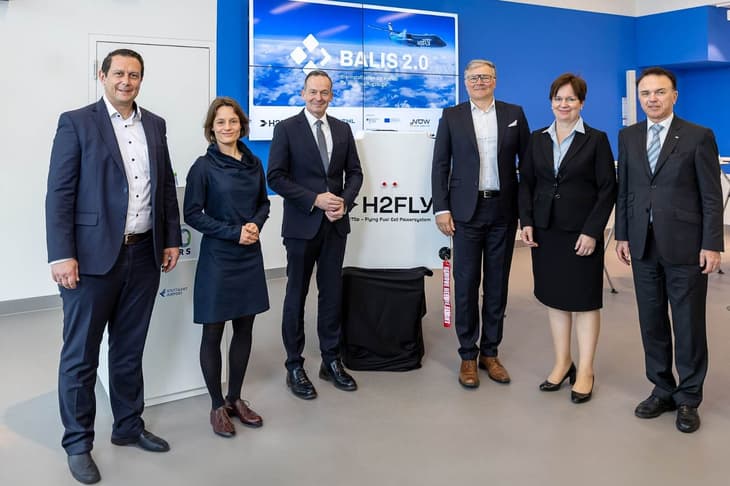A German consortium has secured €9.3m ($10m) of government funding to develop hydrogen fuel cell systems to power regional aircraft.
Led by Stuttgart-based H2FLY, the BALIS 2.0 Project plans to develop and test a 350kW fuel cell system that will serve as the base module to develop megawatt-class hydrogen-electric powertrain systems, which could power 40-80 seater aircraft.
The project will be supported by the German Aerospace Center (DLR) and Diehl Aerospace, which will study coupling behaviours and develop platform technology for scaling.
... to continue reading you must be subscribed





